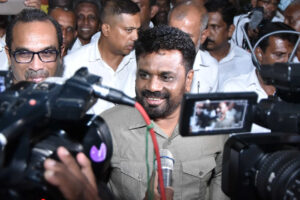Ministry of Transport reports: to promote Latvia’s transit and logistics sector’s cooperation with the Central Asian region, a representative of the ministry agreed on development of cooperation during a visit to Azerbaijan. The plan is to develop an alternative corridor that will connect TRACECA (Transport Corridor Europe–Caucasus–Asia) corridors with Baltic and Scandinavian countries.
During this visit officials discussed ways to expand cooperation in the Transcaspian Corridor, attraction of new freight and creation of new services.
Latvian President Egils Levits visited Azerbaijan on the 8th and 9th of March. The president was accompanied by a delegation, which included Ministry of Transport Transport Logistics and International Coordination Office’s vice-director Andris Maldups.
During the visit he met with TRACECA secretary general Aset Assaubayev. The two sides affirmed there is mutual interest in expanding cooperation. An agreement was reached in regards to the creation of an alternative transit corridor.
In the coming months it is planned to organise the first pilot freight delivery in the direction of Baltic and Scandinavian countries.
TRACECA management will organise expert work groups in order to ‘identify specific carriers and logistical companies that may be interested in participating in the pilot project,’ the ministry reports.
«In the existing geopolitical situation, we need alternatives. Latvia is in the centrel of the Baltic region, and
Ventspils has the best ferry connections with Stockholm.
In the future we plan to create connections from Liepaja as well. Sea ports can secure various logistical services. Latvian Railway, too, uses any opportunities to find new freight and create new services. In the first stage freight is planned to be carried out using land transports. The railway will play an important role as well, especially when it comes to long distances, considering the potential of Rail Baltica project,» admits Maldups.
During his meeting with ALAT Free Economic Zone chairman Valeh Alasgarov, officials discussed the current situation in the Transcaspian Corridor, as well as cooperation opportunities in attraction of new freight and creation of new services. The next step is presenting the management of ALAT with Latvia’s experience in operations of freeports and special economic zones.
Source: BNN News















